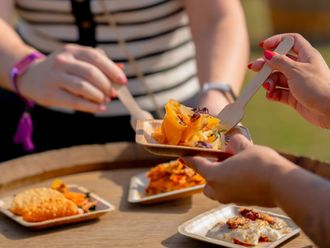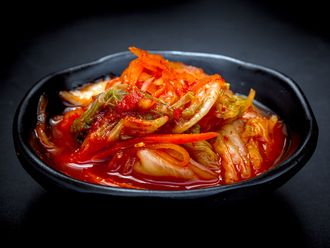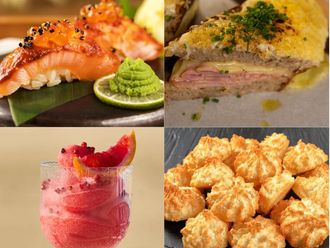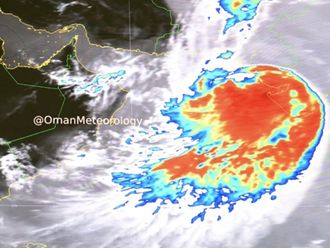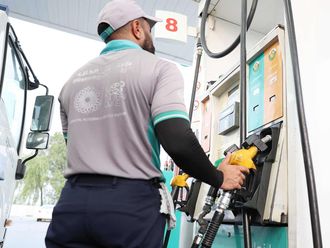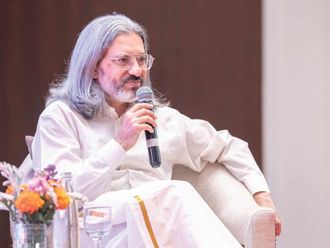
We've all seen the ad. Perfectly spaced beads of condensation teeter on the side of an ice-cold bottle, it's enough to make you thirsty even if you're not.
When we reach for a drink the marketing (or the strange, potentially-toxic-looking colour) can be just as much a draw as the taste.
For example, sports drinks — healthy because athletes can't live without them. Energy drinks — well, who doesn't want more energy, right? But the truth is, the benefits of almost all drinks are usually heavily outweighed by what's lurking behind the intriguing label design (or very high fat content).
Mitun De Sarkar, MD, is a lic-ensed dietitian specialising in food microbiology and talks us through some of the most popular drinks on the market today.
Coca Cola: A 12oz (340g) can has about 145 calories, more than 40g of sugar (ten sugar cubes) which is about seven-eight teaspoons a go, 50mg of sodium and 35mg of caffeine. The sugar content is very high and may contribute to dental erosion.
Same calorie count as three Chips Ahoy! chocolate-chip cookies or ten sugar cubes.
Coke Light and Coke Zero: No calories, no sugar, 28mg of sodium, 45mg of caffeine in a 12oz can. But they are sweetened artificially with aspartame, which is generally associated with multiple health problems. Prolonged use of aspartame results in constant headaches, dizziness, attention difficulties, memory loss, slurred speech and vision problems.
Tang: Two tablespoons of the powder mixed in a cup of water gives you approximately 90 calories and 25g of carbohydrates coming mainly from sugar. The sugar content is high but it gives a reasonable amount of Vitamin C. Skip the sugar and go straight for vitamin C as this antioxidant is very easily available in most fruits including oranges, berries, apples, green and colourful vegetables.
Mountain Dew: A 12oz can has about 165 calories, 75mg of sodium, 47g of sugar (12 sugar cubes) and 54mg of caffeine. I would advise you to stay off it.
Red Bull: A 12oz can has 160 calories, a whopping 289mg of sodium, 40g of sugar (ten sugar cubes), 120mg of caffeine. It also contains more than 1,000mg of taurine and some glucuronolactone which are the ingredients that enhance the mood.
Red Bull sugar-free also contains aspartame, acetsulfame K, and sucralose in place of sucrose and glucose.
Pocari Sweat: It is an isotonic sports drink and a 500ml bottle contains 130 calories and 34g of sugar. It contains 245mg of sodium, has no caffeine but has important electrolytes and minerals such as 1,000 mg of potassium, — which is an important ingredient — magnesium, sodium and calcium which can be replenished by the drink after perspiration. It is recommended as a beverage only for high-level physical activities. For moderate activities, water and a banana are enough.
Same sugar content as a slice of apple pie and 100g of Häagen Dazs vanilla ice-cream.
Gatorade: Also a sports drink, it varies in size, flavour and calorie content. A small 8oz (227g) bottle will have 50 calories, 110mg of sodium, 30mg of potassium, 14g sugar and no caffeine.
Fresh orange juice: If it is freshly squeezed orange juice without any added sugar, it gives 100 per cent vitamin C. The calories may vary depending on the number of oranges used. It could roughly average from to 100-120 calories per cup. It can have 25g of carbohydrates, all of it being natural fruit sugar.
Vitamin C supplements don't provide the same protective benefits as drinking a glass of orange juice. It is also advisable to eat an orange (with the pips) to reap the maximum nutritional benefits.
Frappuccino: A cup of black coffee has only ten calories, but as you start to add things on, the calories add up too. Some nutritional information for 16-ounce (grande) drinks at Starbucks are:
- Non-fat latte: 160 calories, 0g fat.
- Vanilla latte, with whole milk: 280 calories, 10g of fat.
- Caramel frappuccino, with whipped cream: 430 calories, 16g of fat.
- Light caramel frappuccino, without whipped cream: 180 calories, 1.5g of fat.
You have been warned.
Organic tender coconut water: 300ml has about 65 calories, 50mg sodium, 690mg of sodium and 16g of carbohydrates in natural form. The incentive here is its nature's isotonic drink and as an organic product can be an excellent alternative to sports drinks. If you can, drink coconut water straight out of a green coconut to maximise the nutritional benefits.
Energy vs sport drinks
"Energy and sports drinks are becoming increasingly popular. The reason? Promises of being a mental stimulant, improving strength and boosting energy levels," said Dubai-based dietitian Mitun De Sarkar. "No matter what brand or flavour you choose 99 per cent have one common ingredient — caffeine. The ingredients give the feeling of elation, confidence and cognitive performance but for a very short time. The negative effects are crash episodes, jitteriness, sleep deprivation and dehydration.
"Sports drinks are a better option. Instead of stimulants they have high quantities of sugar designed to replenish lost electrolytes when sweating during physical activity."
If you skip the "sport" part and go for the drink, will your body thank you?
"Sports drinks are designed for high-performance athletes. If you're not involved in more than an hour of activity a day, sports drinks only add to your daily kilojoule intake. For short runs — less than one hour — water alone is fine. Sports drinks are high in sugar and have little or no nutritional value. Only as distance and time increase will you need more than water to sustain you."
The boring truth: "Water has no calories and no nutrients yet the benefits outnumber the most popular isotonic drinks. Water eliminates waste products and toxins from your body, prevents dehydration, improves digestion, aids metabolism of stored fat in the body and naturally suppresses your appetite."
The bottom line: "Don't depend on energy or sports drinks. Drink water. Fruits and vegetables and a balanced diet will provide you with the daily allowance of important vitamins and minerals needed to replenish water loss. Limit caffeine intake to 200-300mg per day from coffee, tea, green tea, chocolates. Limit sugar to not more than 20g a day. If you have to reach for something go for fresh coconut water and home made sports drinks made with one litre of water, two tablespoons of lemon juice or 200ml orange juice and a pinch of salt."



